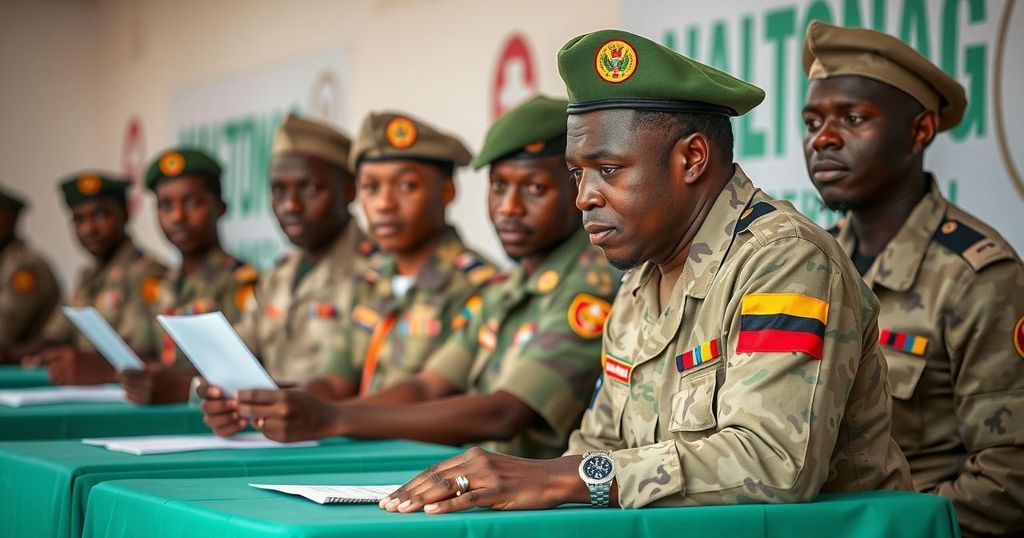Chad Elections: Legislative and Local Votes Amid Opposition Boycott

On Sunday, Chad held elections after three years of military rule, amidst opposition boycotts and allegations of electoral fraud. The ruling party is expected to dominate the polls, with concerns of a political system entrenched in deception. Amidst ongoing insurgent threats and a media blackout, the elections symbolize a critical moment in Chad’s transition towards democracy.
On Sunday, Chadians cast their votes in legislative, provincial, and local elections, marking the end of three years of military governance. Opposition parties, however, boycotted the polls, alleging that the previous presidential election was marred by fraud. The ruling party, aligned with Marshal Mahamat Idriss Itno, is perceived to benefit from this boycott, as they prepare to solidify their power after being legitimized following a contentious presidential election in May.
Opposition leader Succes Masra urged voters to refrain from participating, describing the political system as predicated on “lies and electoral theft.” The Democratic Party of the Chadian People accused the government of orchestrating election fraud, citing the disappearance of ballots intended for Bongor. Despite the government’s claims of progress toward democracy, the elections unfold amidst ongoing insurgent threats from Boko Haram, allegations of unrest in the region, and a media blackout due to a strike by journalists.
Chad has not experienced legislative elections since 2011, with previous attempts hindered by various crises. Marshal Itno ascended to power following the death of his father, Idriss Déby Itno, and has faced increasing accusations of authoritarian rule over time. As turnout expectations remain uncertain, party officials aim to foster a sense of participation among the populace against a backdrop of political repression and dissent.
Chad has been under military rule since the death of its long-term leader, Idriss Déby Itno, in 2021. His son, Marshal Mahamat Idriss Itno, took power amidst promises of a transition to democracy, yet significant opposition exists. Opposition parties have claimed that electoral processes have been manipulated, notably during the last presidential election. This current election cycle is pivotal, as it symbolizes both a potential return to democratic governance and the consolidation of power by the ruling party amid allegations of fraud and autocratic governance.
The recent elections in Chad take place under a climate of accusation and contention, with opposition leaders calling for boycotts due to perceived electoral malpractice. With the ruling government presenting these elections as a milestone towards democratic transition, the social and political landscape remains fraught with challenges, including threats of violence from insurgent groups and internal dissent against autocratic practices. The outcome of these elections will significantly influence Chad’s political future and stability in the region.
Original Source: www.france24.com






